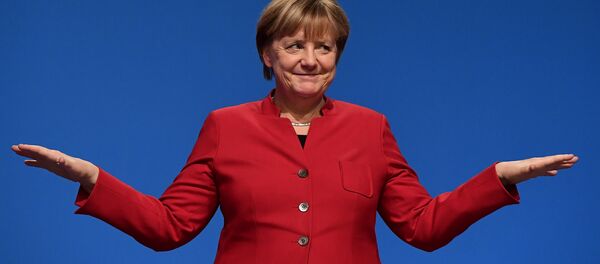Why Performance of Populist Parties is Difficult to Assess
The performance of populist parties in any elections — be it a presidential election in the US, or parliamentary election in Germany — is hard to predict due to three main reasons, Berliner Zeitung wrote.
First, polling institutions can't reach all segments of the population, because not all Germans have constant access to Internet or are available for a telephone survey.
Second, the number of people willing to participate in such surveys is quite low, a tendency that can often be observed among right-wing voters.
And finally, people usually don't want to express their opinion which they know is unpopular among the majority of the population in an interview with other people. This was especially evident in the US election campaign, when Trump supporters refused to openly express their position or just lied on the surveys.
How to Predict Possible Election Outcomes
For instance, social-media-start-up Echobox does not rely on the data from polls and surveys, but investigates Internet users' — namely what they read, how many comments they post and to which articles.
In this way, the Echobox team succeeded in predicting the success of French President Emmanuel Macron, who dominated the headlines and received the most attention among Internet users.
"It did not matter if they were positive or negative headlines," Echobox's head Sebastian Huempfer told the newspaper. "The more attention a candidate gained, the more success he had later."
Assessing Long-Term Trends
"We combine all available surveys, then look at how certain polling institutes performed in the last elections and weigh the surveys accordingly. In this way, we can identify medium and long-term trends," Gross said.
In particular, Gross' method predicts that Alternative for German (AfD) could become the third-strongest force in the Bundestag with about a 54 percent probability and with about ten percent of the total votes.




